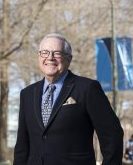Guest Post by Nahed Asbeh
Originally published on Connection Point by Peace X Peace
Sexual and reproductive health is an issue that impacts women everywhere. Nahed Asbeh is the director of a sexual health counseling center in the Negev, where she works with Bedouin women and men to break the cycle of deeply ingrained taboos and practices.
***
As a Palestinian woman citizen of Israel, I have witnessed social injustice and from a young age was exposed to a difficult side of my society. During my undergraduate studies I taught Hebrew to Palestinian high school girls and witnessed their daily challenges in a traditional society. I also volunteered at a rape crisis center in Jerusalem and became aware of the issues of gender inequality and inequity that led to violence. I learned that ignorance strengthens and perpetuates stereotypes and prejudice. I was passionate about community work and co-established the SAWA (“All the Women Together Today and Tomorrow”) rape crisis center for the Palestinian community in Jerusalem.
I also realized that to reduce sexual violence and ignorance I needed to start with myself. I studied human sexuality to learn what healthy sexuality means and how to communicate it to my people. I won the Israeli-Arab Scholarship Program, which allowed me to earn my Master’s degree in Human Sexuality Education at New York University.
After my return to Israel, I worked with the Israeli Family Planning Association in the Negev as a Sexuality Education Project Coordinator serving the underprivileged Bedouin population. The aim of the project is to bridge the gap between the quantity and quality of sexual health services and programs that the Bedouin population currently receives. I have functioned in this position on two levels: teaching formal courses for practitioners and teachers and providing informal community-based modular training. Our trainings and teaching focus on the biological, psychological, and social aspects of sexuality.
Given the Bedouins’ deep-rooted culture of silence regarding sexual and reproductive health it is critical that it is addressed from within. The sensitivity of these topics, combined with the lack of awareness that sexual rights are basic human rights, creates a clear and pressing need for a specially designed program. This project is a community-based initiative that emanated from a realization of the scope of the problem and the actual needs of the community.
In the process of training local Bedouin teachers, social workers, educational counselors, and nurses on sexuality, I customize the training modules to the specific needs of the trainees and their culture. This enables them to communicate it to their beneficiaries and empowers them to make reproductive choices based on awareness. I also communicate the importance of the project to governmental and non-governmental organizations to help recruit course participants.
Intercultural issues sometimes pose major challenges while working with the Bedouin community. One example is that the perception of time is handled differently among the Bedouin—time accuracy is not that important for them and as a result women don’t always attend meetings on time. This tendency creates major challenges for us as facilitators and trainers, especially because we are dealing with a topic that can be perceived as very scary for some participants. We do our best to maintain a secure setting (including starting and finishing on time) in order to provide the participant with a sense of security and protection.
Another major challenge we face relates to funding. Most donors prefer to provide funding to support women in seeking jobs and becoming independent. They give priority to women’s financial independence and therefore our work is perceived as less important.
In spite of these challenges, this project is a pioneer initiative in a community that can’t afford the basic services it needs. And it’s a courageous step to break the cycle of deeply ingrained sexual taboos and practices of domestic violence, sexual abuse, early and multiple marriages, unplanned and repeated pregnancies, and sexual behavior that leads to infections with sexually transmitted diseases and HIV/AIDS.
***
To read more about sexual and reproductive health and rights, see this interview with Moroccan doctor and activist Imane Khachani on Muslimah Media Watch: http://muslimahmediawatch.org/2011/04/simply-everything-an-interview-with-imane-khachani/



















{ 0 comments… add one now }